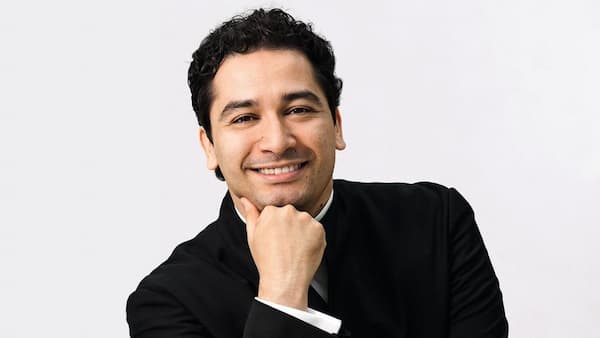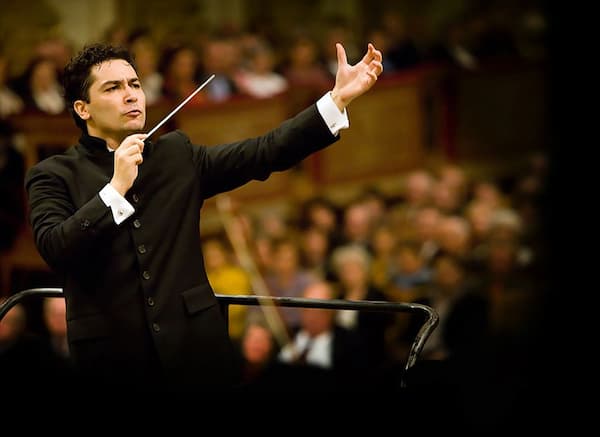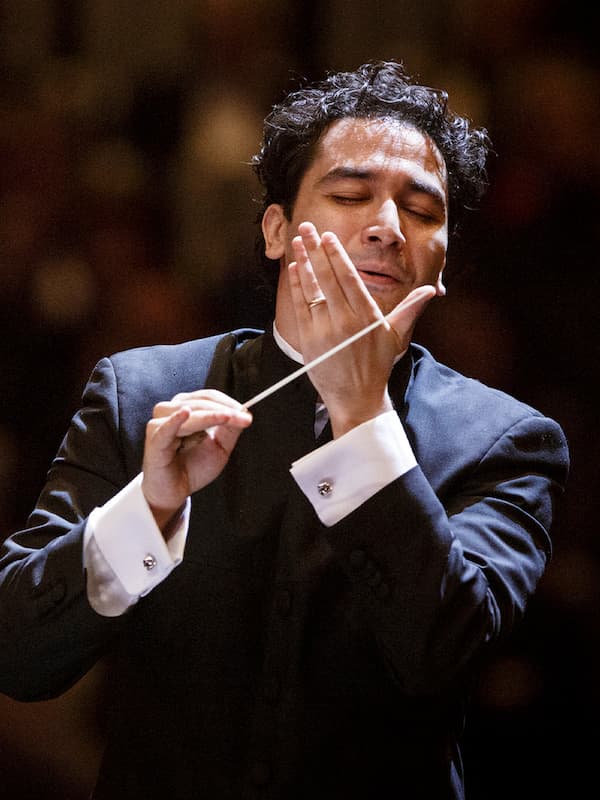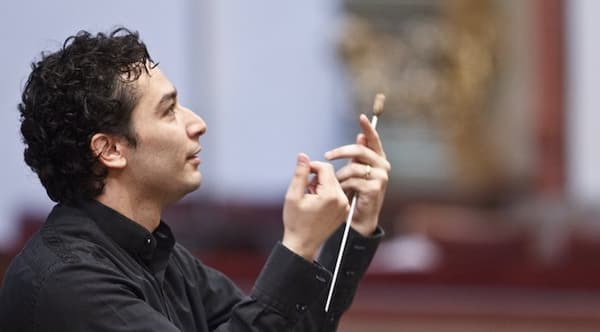The Colombian violinist and conductor Andrés Orozco-Estrada is known for his dynamic and expressive leadership across a highly versatile musical repertoire. His background as a violinist has greatly informed his conducting style, as he frequently draws attention to deep musical connections to communicate both technical precision and emotional depth. His discography with the Houston Symphony, Vienna Philharmonic, and Frankfurt Radio Symphony Orchestra has been praised for their energy, clarity, and emotional expressiveness.
Andrés Orozco-Estrada Conducts Strauss’ Thus spoke Zarathustra, Op. 30
Childhood

Andrés Orozco-Estrada
Andrés Orozco-Estrada was born on 14 December 1977 in Medellín, Columbia. His father was a civil engineer, and his mother had a background in linguistics and literature. Although not musicians, his parents valued the arts and provided a nurturing environment that encouraged artistic interests. Andrés was introduced to classical music early on, and his parents were highly supportive of his musical aspirations.
As he relates in an interview, “I was very lucky. I attended a kind of music school and, at the age of six, had my first violin lessons there. I was in a protected environment, which was very important for my development as a person. Especially when you bear in mind that those were difficult years in Colombia, especially in Medellín, where I’m from. Music was enormously helpful in that context.”
Jimmy López-Bellido: Aurora (Leticia Moreno, violin; Houston Symphony; Andrés Orozco-Estrada, cond.)
A Musical Career

During his early years, the only thing that actually competed with music was football. As he recalled, “I played a lot of football as a goalkeeper, even though I’m actually relatively small. But back then, I was always so full of energy that I would just leap around like a madman.” However, he would soon have to make a decision, and he did. Orozco-Estrada continued his study with violinist David del Pino, who also introduced him to the world of conducting and orchestral music.
Orozco-Estrada had first been interested in conducting when he was 7 or 8, leading an imaginary orchestra in his family’s living room. By the age of 15, he was playing violin in the school orchestra and in a string quartet when a teacher recognised his interest in conducting and asked him to lead a chamber music rehearsal. Since he did exceptionally well, he took over the ensemble for the rest of the semester. He began imitating conductors he saw on video and was particularly drawn to Leonard Bernstein’s pedagogical methods and charismatic conducting style.
Andrés Orozco-Estrada Conducts Barber’s Adagio for Strings
Bogotá and Vienna

Just shy of his seventeenth birthday, Orozco-Estrada moved to Bogotá to continue his conducting and violin studies at Pontificia Universidad Javeriana. “I took music just as seriously as my life,” he explained, “and I was deeply absorbed in it.” He stayed in Bogotá for two years and started to consider advanced musical training in the United States and Great Britain. Ultimately, he settled on Vienna because he was fascinated by the city’s rich musical history and traditions.
Once he had passed the entrance exam at the University of Music and Performing Arts, he decided to “learn everything I didn’t know. So every day, I sat in the music section of the city library for two months and studied the symphonies of, among others, Schubert, Haydn, Bruckner, Mahler, everything I hadn’t had access to before.”
Leonard Bernstein: West Side Story: Symphonic Dances (Houston Symphony; Andrés Orozco-Estrada, cond.)
First Appointments

When he arrived in Vienna at the age of 19, a teacher apparently said to him, “You have a whole lot of energy, but just cool down now.” In Vienna, he discovered that “I could breathe with an orchestra and that the whole process is very organic. And above all, make it happen with a lot of joy and enthusiasm.” He first conducted the Tonkünstler Orchestra at the Vienna Festwochen as a last-minute substitute, which led to an appointment as assistant conductor.
Simultaneously, he serves as the principal conductor of the Großes Orchester Graz and as music director of Oper Klosterneuburg. He stayed with the Tonkünstler for seven years and eventually combined conductorship with both the hr-Sinfonieorchester Frankfurt and the Houston Symphony Orchestra. As a critic wrote, “It is the combination of dancing playfulness and an uncompromising pursuit of perfection that clearly distinguishes Orozco-Estrada’s work.”
For more of the best in classical music, sign up for our E-Newsletter
